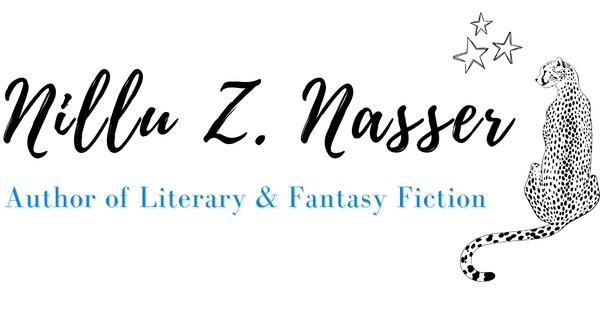Photo by Angie Garrett
Like many of you, I’ve been a keen reader since childhood. Reading was an escape when my loving, boisterous family overwhelmed me, when the world was quiet and friends slept, and the television pixels seemed to zap energy rather than give it. I started with Roald Dahl, Enid Blyton and Judy Blume and was hooked from there. I harboured a dream to write, but it took many years before I began to pen my own stories, and the birth of my children to crystallise my goal of being a writer. Our eldest is now five years old. In those years of learning to be a mum, though writing speeches, briefings and proposals were part of my day job, I took the first real steps to making fiction writing my career.
Daydreams are fun, but in reality a writing career does not emerge overnight. Lady Luck does not suddenly propel you to the top of the New York Times Best Seller List or award you the Baileys Women’s Prize for Fiction overnight. It’s all about work. The hours at a desk, the battles with doubt, pouring over craft books, the notes scribbled at school pick up because you’ve found a detail that is just perfect for your story, nurturing relationships, attending conferences, and trusting strangers with your work. So much of this is pleasurable. And so much of this is hard. It’s a marathon, not the 100m. These repeated acts, month after month, year after year, they are what makes a writer.
I’m still on that path. There are certain things that have taught me a huge amount and made me braver. They are:
1. Setting writing goals and meeting them
After years of daydreaming it was key for me to prioritise writing. I made sure my loved ones knew how important it was to me, partly so they could hold me to account, but also to claim writing as part of my identity. I set both short and long-term writing goals, one of which is to write every day. I try to not let more than a day pass without putting pen to paper, even if it is just writing in my journal. This mindset was the biggest shift I made, and I find if I don’t write regularly my contentment nosedives.
2. Reading craft books and blogs

Photo by Celes
In the early days, when I was still building my confidence, it helped to read craft books such as Julia Cameron’s The Artist’s Way, Anne Lamott’s Bird by Bird and Stephen King’s On Writing. I also like Renni Browne’s Self-Editing for Fiction Writers. I find it helpful to read blogs by fellow writers both for motivation and tips. Blogs by Emma Darwin, Kristen Lamb, Chuck Wendig, K. M. Weiland and Ksenia Anske are amongst my favourites.
3. Starting a blog of my own
I have about 1000 blog readers currently and have been blogging for nearly two years. I post once a week and my website draws about thirty views a day and spikes with #MondayBlogs and #WWWBlogs traffic. I could be better at self-promotion and SEO, but even as it is, blogging has taught me valuable lessons about courage, meeting deadlines, staying the course and what resonates with readers. And I have made wonderful friends since the start of this journey.
4. Social media and online communities
Platform-building is important, yes, but it’s the relationships that are the most enriching here. I use Twitter and my Facebook author page most of all, and have G+, Instagram, Pinterest and Goodreads accounts, which I use to varying degrees.
There are wonderful communities that can be found through hashtags such as #MondayBlogs, #WWWBlogs, #ArchiveDay and writing challenges such as #FridayPhrases, #FlashFriday and NaNoWriMo, as well as Facebook groups. My favourites there are Ally Atherton’s Writer’s Soapbox, Anna Meade’s Dark Fairy Queen and Her Brilliant Minions and Jennifer Blanchard’s The Emerging Author Incubator.
You might be sitting in a turret all day writing your novel, or at the kitchen table when everyone else is in bed, but these groups help keep the loneliness at bay and can lead to lasting friendships and great collaborations. Just beware that the flip side of social media is that it takes time and can be addictive. You’ll know to scale back if your writing output suffers.
5. Finding a critique group

Photo by Pauline Mak
My husband is my first reader. He has a keen eye for the rhythm of a sentence and character motivation, and he’s not afraid to tell me when something is not working. Even so, there are drawbacks with getting feedback from loved ones. Will they tell you the truth? Do they know enough about the genre and the craft to know what works and what does not? Feedback from family and friends paints a picture, but there comes a point when external review is critical to getting your work polished enough for publication.
First, I began using beta readers and critique partners. Then six months ago I wrote a post about using critique groups to accelerate your learning as a writer. I discussed how critique groups are a valuable tool, but can also damage your confidence if you are not quite ready to expose your work to scrutiny, or the group is not the right fit for you. At the time, I was thinking about finding my own critique group and the article reflected my thought process, though I was still wary about entrusting my work – and my ego – to a group of strangers. I didn’t want my confidence to be crushed. In fact, for a time I considered carrying on in my little bubble.
But that’s just it, isn’t it? It’s part of the philosophy about improving ourselves. Do the work. It’s far better to be aware of your flaws and to hone your craft, than forfeit your chance to be better. When the opportunity came to apply for Write Draft Critique: The Virtual Writer Workshop, founded by M.J. Kelley, I took a deep breath and decided to go for it.
It’s the single best decision I’ve made this past year.
The workshop took place over a seven-week period. It happens online, in a way that allows those with job pressures and families to fit the work around their schedules. It is a remarkable set-up, with the founder, group moderators, new and established writers all submitting their work for review and writing critiques. This sets up an egalitarian review system despite the difference in experience levels.
Some people submit work which has already been prepared; others write as they go along. Critiques are given both on the manuscripts and in long form. The magic of the Write Draft Critique set-up is, I think, in the people who run it, and the clear guidelines they have established. It is an intense experience. I was fearful, and steeled myself each time I read a critique of my work, but the trust and rapport built up within the group incredibly quickly.
I now have a better understanding of what to watch out for in my work and what I do well. I learnt that I can operate at a higher speed without compromising quality, but I need more training to keep up that level for any length of time. I have a better sense, thanks to my critique group, about where I need to ‘kill my darlings’ in my novel, and where my vision needs more work.
I learnt as much from submitting work as from critiquing others, and discovered a liking for genres I have not yet read much of. I looked forward to reading the new instalments of my peer’s stories each week, and I can’t wait to read those finished stories. I met writers who know the rules of grammar better than me (I’m so used to having that all down, having learnt German and Latin, and taught English as a foreign language). I found heaps of things to admire and aspire to in other writers and made, I hope, sound friendships.
You can read more about Write Draft Critique on Wolf Dietrich’s blog and on the workshop website. As for me, I’m sad that the experience is over, but I hope to take part in Write Draft Critique regularly in the future. And I am excited about a short story I submitted to the workshop that I will be sending to readers as a thank you for signing up to my email list, which you can do here.
–
So there you have it, the five decisions that have had the most impact on my writing so far. I’d love to hear in the comments about whether there is anything not on this list that has helped you progress with your writing. What are your favourite craft books? Which blogs do you recommend? Have you had any experience with critique groups?

